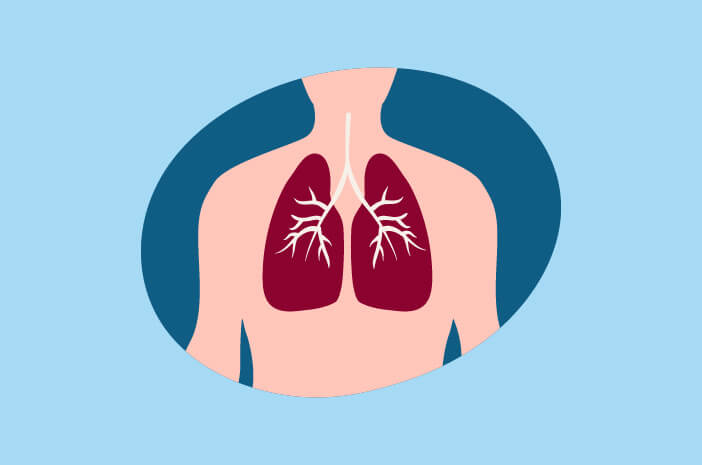
Patrick Orikiriza, Julianna Smith, Bob Ssekyanzi, Dan Nyehangane, Ivan Mugisha Taremwa, Esther Turyashemererwa, Onesmas Byamukama, Tobias Tusabe, Elisa Ardizzoni, Ben J. Marais, Eric Wobudeya, Elizabeth Kemigisha, Juliet Mwanga-Amumpaire, Dora Nampijja, Maryline Bonnet
European Respiratory Journal 2022 59: 2101116; DOI: 10.1183/13993003.01116-2021
Extract
Background Non-sputum-based diagnostic approaches are crucial in children at high risk of disseminated tuberculosis (TB) who cannot expectorate sputum. We evaluated the diagnostic accuracy of stool Xpert MTB/RIF and urine AlereLAM tests in this group of children.
Methods Hospitalised children with presumptive TB and either age <2 years, HIV-positive or with severe malnutrition were enrolled in a diagnostic cohort. At enrolment, we attempted to collect two urine, two stool and two respiratory samples. Urine and stool were tested with AlereLAM and Xpert MTB/RIF, respectively. Respiratory samples were tested with Xpert MTB/RIF and mycobacterial culture. Both a microbiological and a composite clinical reference standard were used.
Results The study analysed 219 children; median age 16.4 months, 72 (32.9%) HIV-positive and 184 (84.4%) severely malnourished. 12 (5.5%) and 58 (28.5%) children had confirmed and unconfirmed TB, respectively. Stool and urine were collected in 219 (100%) and 216 (98.6%) children, respectively. Against the microbiological reference standard, the sensitivity and specificity of stool Xpert MTB/RIF was 50.0% (6/12, 95% CI 21.1–78.9%) and 99.1% (198/200, 95% 96.4–99.9%), while that of urine AlereLAM was 50.0% (6/12, 95% 21.1–78.9%) and 74.6% (147/197, 95% 67.9–80.5%), respectively. Against the composite reference standard, sensitivity was reduced to 11.4% (8/70) for stool and 26.2% (17/68) for urine, with no major difference by age group (<2 and ≥2 years) or HIV status.
Conclusions The Xpert MTB/RIF assay has excellent specificity on stool, but sensitivity is suboptimal. Urine AlereLAM is compromised by poor sensitivity and specificity in children.
Modest sensitivity but high specificity and good feasibility support the use of stool Xpert MTB/RIF in young children at high risk of disseminated tuberculosis; however, urine AlereLAM showed poor specificity and has little applicability https://bit.ly/3oMLNHU
Acknowledgements
This work was made possible through several contributions of staff and partners at different levels. We would like to particularly express our gratitude to the study participants. We also thank the nurses, laboratory and data personnel of Epicentre Mbarara Research Centre (Mbarara, Uganda) that participated in data collection and analysis. Special credit goes to Médecins Sans Frontières for the funding.
Footnotes
-
This article has supplementary material available from erj.ersjournals.com
-
Author contributions: P. Orikiriza and M. Bonnet conceptualised and designed the study, drafted the initial manuscript, and reviewed and revised the manuscript. J. Smith carried out the statistical analyses and reviewed the manuscript. B. Ssekyanzi, D. Nyehangane, I. Mugisha Taremwa, E. Turyashemererwa, O. Byamukama, T. Tusabe and D. Nampijja contributed to the data collection and reviewed the manuscript. E. Ardizzoni, B.J. Marais, E. Wobudeya, E. Kemigisha and J. Mwanga-Amumpaire participated in the conceptualisation and design of the study, and reviewed the manuscript. All authors approved the final manuscript as submitted and agreed to be accountable for all aspects of the work.
-
Conflict of interest: P. Orikiriza has nothing to disclose.
-
Conflict of interest: J. Smith has nothing to disclose.
-
Conflict of interest: B. Ssekyanzi has nothing to disclose.
-
Conflict of interest: D. Nyehangane has nothing to disclose.
-
Conflict of interest: I. Mugisha Taremwa has nothing to disclose.
-
Conflict of interest: E. Turyashemererwa has nothing to disclose.
-
Conflict of interest: O. Byamukama has nothing to disclose.
-
Conflict of interest: T. Tusabe has nothing to disclose.
-
Conflict of interest: E. Ardizzoni has nothing to disclose.
-
Conflict of interest: B.J. Marais has nothing to disclose.
-
Conflict of interest: E. Wobudeya has nothing to disclose.
-
Conflict of interest: E. Kemigisha has nothing to disclose.
-
Conflict of interest: J. Mwanga-Amumpaire has nothing to disclose.
-
Conflict of interest: D. Nampijja has nothing to disclose.
-
Conflict of interest: M. Bonnet has nothing to disclose.
-
Support Statement: This study was funded by Médecins Sans Frontières. Funding information for this article has been deposited with the Crossref Funder Registry.
- Received February 8, 2021.
- Accepted May 16, 2021.














